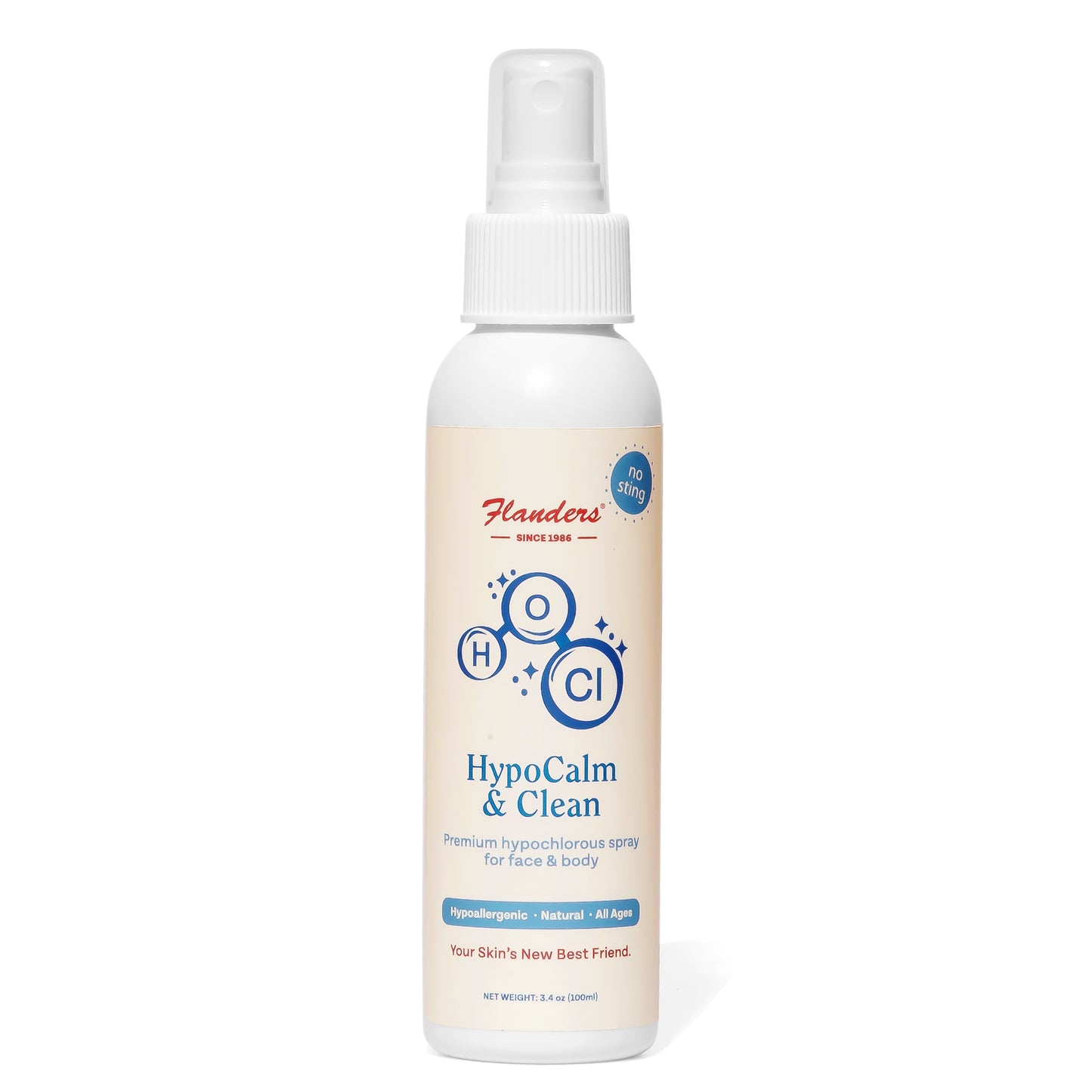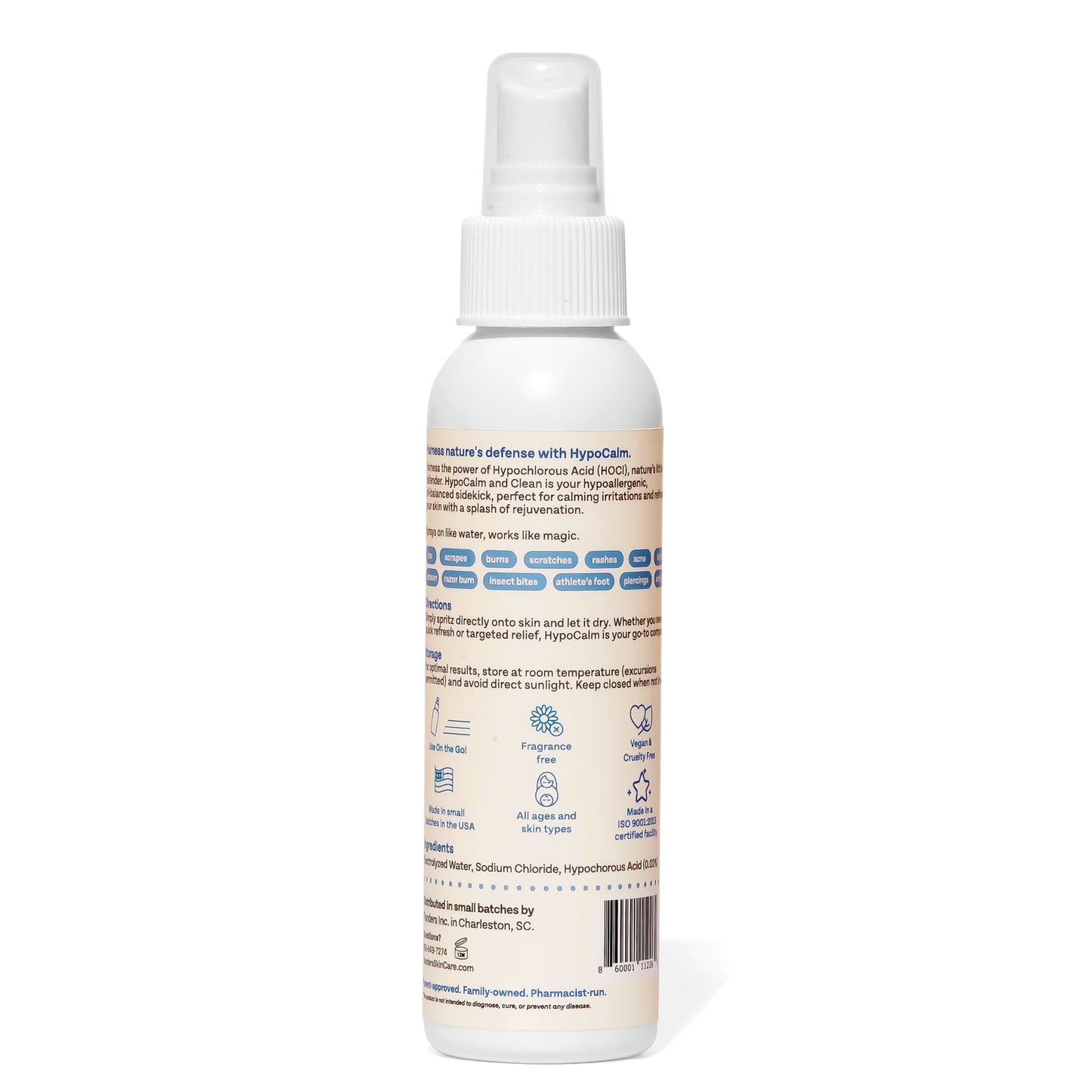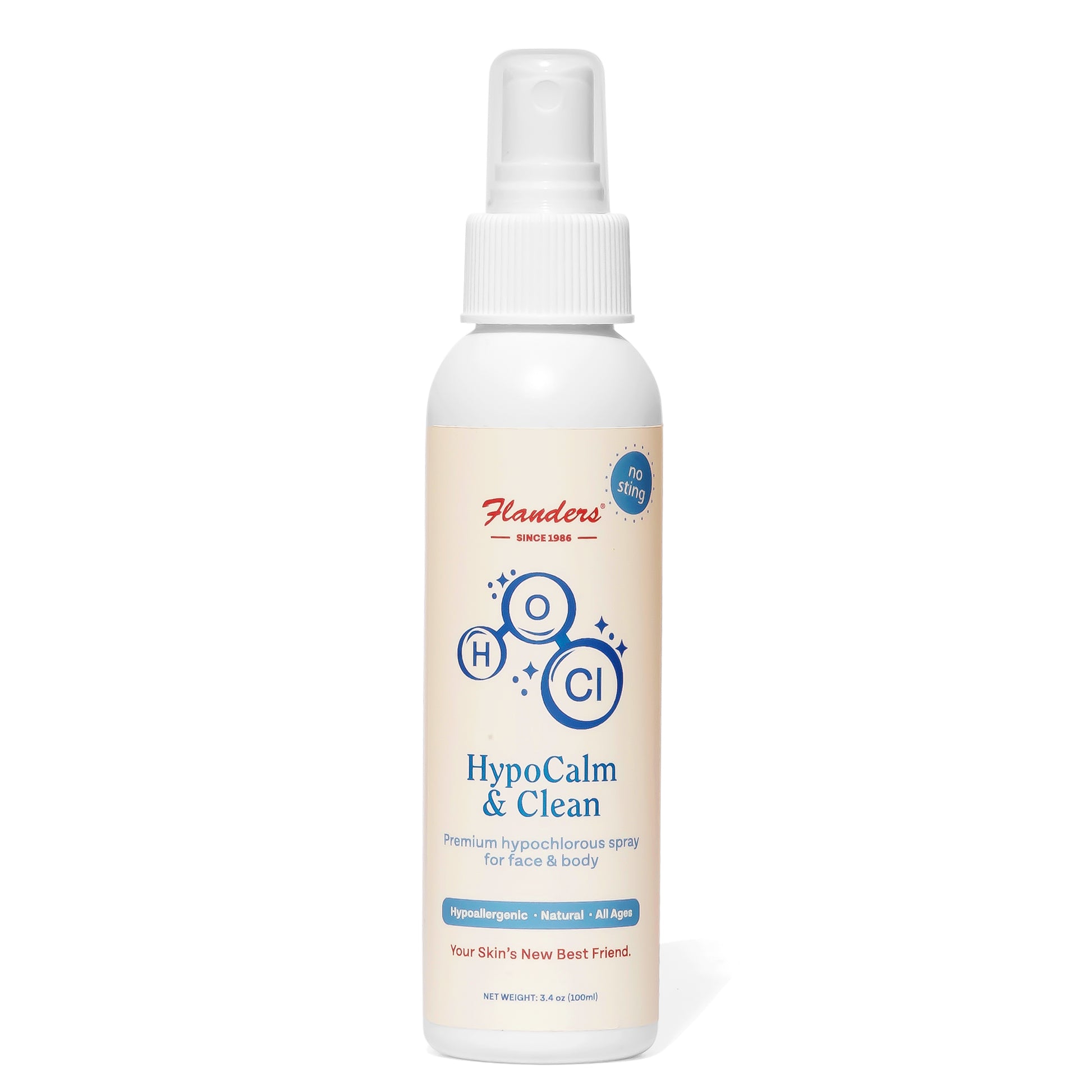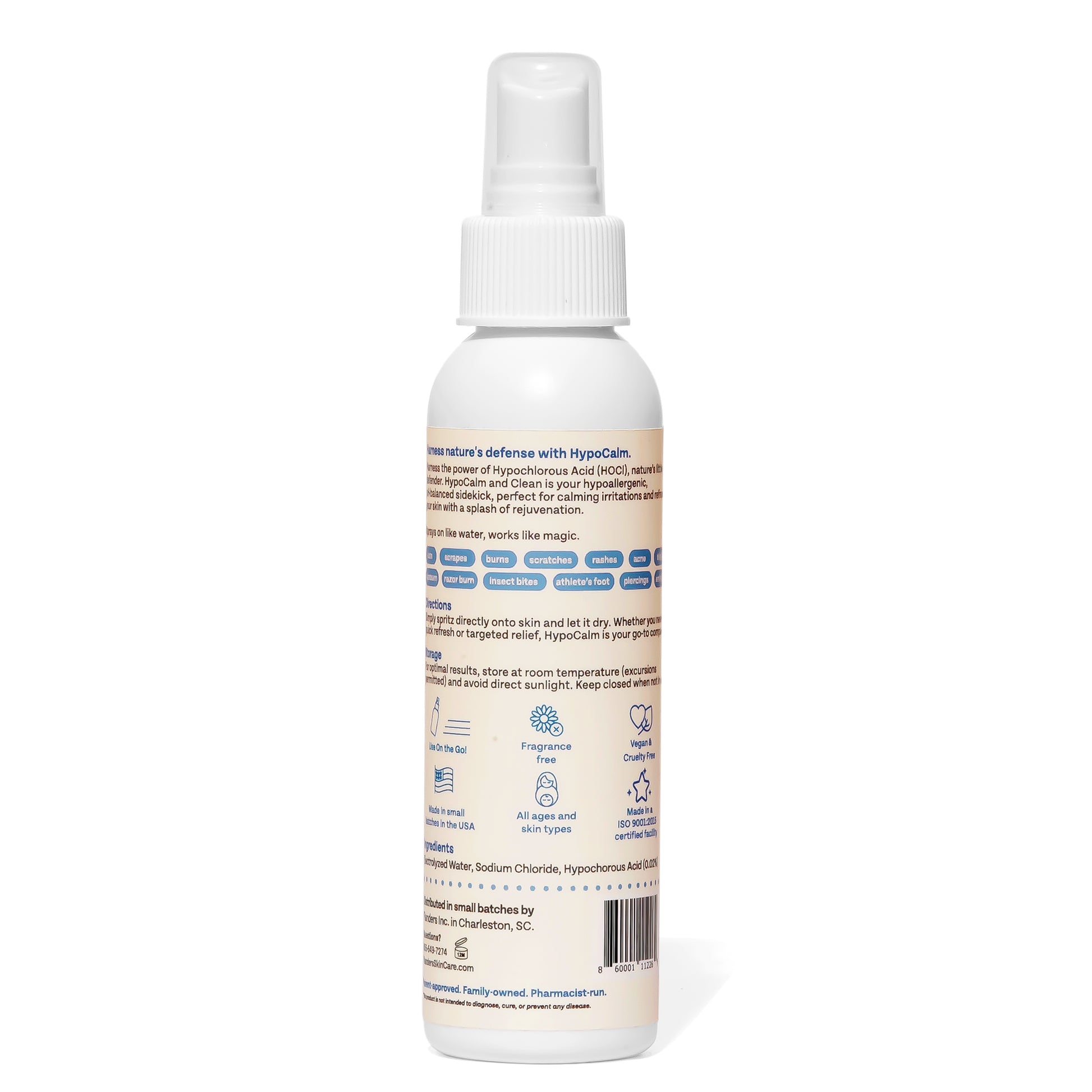Where first aid meets skincare
Flanders HypoCalm Hypochlorous Spray
Flanders HypoCalm Hypochlorous Spray
- acne
- Burns
- Cuts
- first aid spray
- piercings
- poison ivy
- Scrapes
3.4oz (100ml)
Couldn't load pickup availability
Goes on like water, works like magic!
Unlock the power of Hypochlorous Acid (HOCL) for skin health in both children and adults! Hypocalm is your gentle yet effective solution, perfect for addressing a WIDE variety of skin issues. Safe for all ages, it helps soothe and heal skin, reducing infection risk without harsh chemicals, Make Hypocalm a staple in your family's first aid kit and skincare routine today, and give your loved ones the relief and care their skin deserves.
- Gentle Formulation: Safe for all skin types, including sensitive skin in children.
- Antimicrobial Properties: HOCL is shown to effectively kill bacteria, viruses, and fungi.
- Soothing Effect: Calms redness, irritation, and inflammation, providing relief for various skin conditions.
- Promotes Healing: Helps accelerate the healing process for cuts, scrapes, and other minor skin injuries.
- Non-Irritating: Free from harsh chemicals, minimizing the risk of skin irritation or allergic reactions.
- Hydrating: Enhances moisture retention, improving overall skin hydration and texture.
-
Versatile Use: Suitable for a wide range of skin issues, including acne, eczema, and post-procedure care.
- Made in the USA: Made in a ISO 9001:2015 facility ensuring purity and stability.
So many uses, here are some tips...
1. Minor Cuts and Scrapes
- Application: Spray a sufficient amount of hypochlorous acid directly onto the cut or scrape to cleanse. This is great if you are not near a water source to rinse the wound before. Allow it to air dry. Cover with bandage if available.
- Frequency: Use 1-2 times a day until healed.
2. Burns
- Application: For minor burns, rinse the area with cool water first. Spray onto the burn, ensuring full coverage. Do not wipe or rub.
- Frequency: Apply 1-3 times daily as needed for relief and healing.
3. Rashes and Irritations
- Application: Clean the area with a mild soap and water. Spray the rash, allowing it to dry fully. Apply our Buttocks Ointment after dried for superior results on diaper rash.
- Frequency: Use 2-3 times a day until symptoms improve.
4. Acne Treatment
- Application: After cleansing your face, spray hypochlorous acid onto the affected areas. using before and after gym workouts may also help prevent breakouts.
- Frequency: Use 1-2 times a day as part of your skincare routine.
5. Post-Procedure Care (e.g., laser treatments, chemical peels)
- Application: After any skin procedure, spray hypochlorous acid on the treated area to soothe and protect the skin. Avoid touching or rubbing the area.
- Frequency: Apply as directed by your skincare professional, typically 2-3 times daily.
6. Insect Bites
- Application: Spray hypochlorous acid onto the bite area to reduce itching and inflammation.
- Frequency: Use as needed to alleviate discomfort.
General Tips:
- Always do a patch test on a small area of skin before first use.
- Store the spray in a cool, dark place to maintain its efficacy.
- Consult a healthcare provider for serious injuries or persistent skin issues.
Frequently Asked Questions
Frequently Asked Questions
What is Hypochlorous Acid?
Hypochlorous acid (HOCl) is a weak acid that occurs naturally in the body, produced by white blood cells as part of the immune response. It has powerful antimicrobial properties, effectively killing bacteria, viruses, and fungi.
Due to its safety and effectiveness, hypochlorous acid is increasingly being used in healthcare, first aid, and skincare products for cleansing, disinfecting, and promoting healing without causing irritation.
Why does it have a slight Chlorine smell?
Hypochlorous acid (HOCl) smells like chlorine because it shares a similar chemical origin! Imagine you're at a pool, and you catch that sharp, pungent scent — that's chlorine. What you're really smelling is often a mix of chlorine gas (Cl₂) or other chlorinated compounds, which can be a bit harsh on the nose.
Hypochlorous acid as the cousin of chlorine. It's like chlorine went to a party, hung out with water (H₂O), and became a bit more chill, forming HOCl. Even though it's less aggressive than pure chlorine, hypochlorous acid still has a little bit of chlorine's "personality" — that's why it gives off a similar smell.
In a nutshell, they share the same chemical family, so when you sniff hypochlorous acid, your brain recognizes the scent as something that has a chlorine-like vibe! It's like a little hint of chlorine, but less in-your-face and more mellow.
How is hypochlorous acid different than bleach?
While both hypochlorous acid and bleach are used for cleaning, hypochlorous acid is much milder and safer for more sensitive tasks (like health care), while bleach is the go-to for big jobs that require heavy-duty cleaning power. So, while they share a family connection, they have different levels of strength and uses — like comparing a helpful, gentle cleaner to the strong, "no-nonsense" cleaner. Bleach also has an extremely high pH (13-14), while our hypochlorous acid is around 6.
Share



